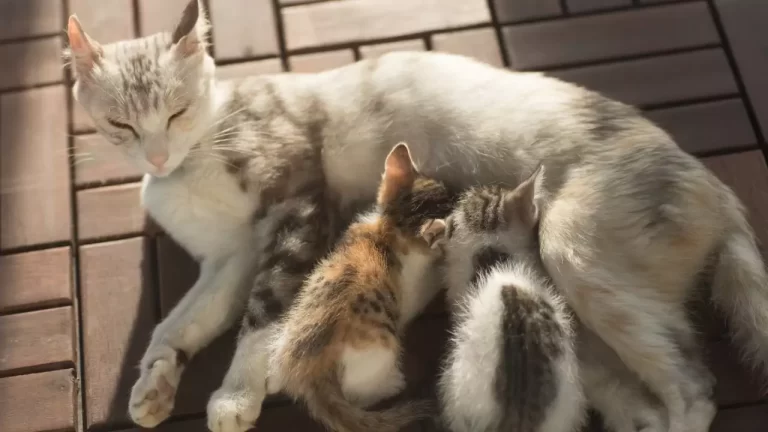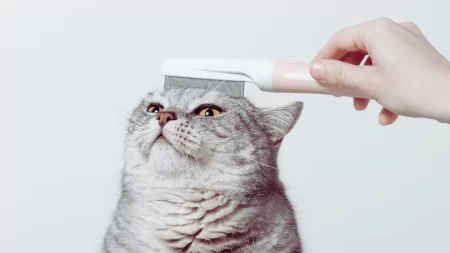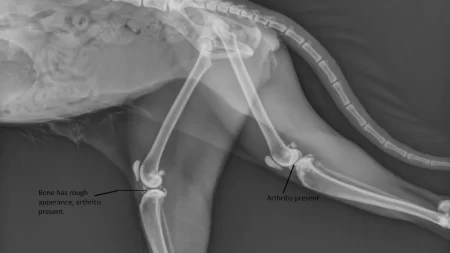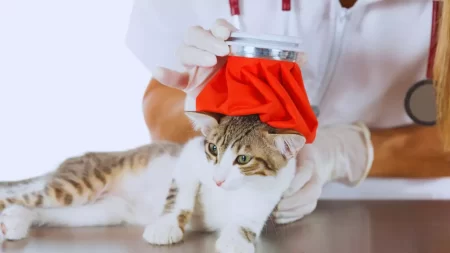Cats are considered fully grown when they reach 18 months of age, equivalent to the maturity level of a 21-year-old human. However, the growth timeline can vary among different breeds. Some cats may continue to grow in size between 12 to 18 months, with certain breeds reaching their full size only by the age of 2 years.
Factors That Affect When Cats Stop Growing
There are four main factors that affect when cats stop growing: gender, spaying and neutering, diet and lifestyle, and breed.
Gender
Male cats tend to grow larger and faster than female cats, as they have more testosterone and muscle mass. Male cats usually reach their adult size by 12 to 18 months, while female cats may stop growing by 9 to 12 months.
Spaying and Neutering
Spaying and neutering can alter the hormones and metabolism of cats, which can affect their growth and development. Spayed and neutered cats tend to grow longer and heavier than intact cats, as they have less energy expenditure and more appetite. Spaying and neutering can also prevent some health problems and unwanted behaviors that can affect the growth of cats, such as infections, cancers, and aggression.
Diet and Lifestyle
The quality and quantity of food that cats eat can have a significant impact on their growth and size. Cats need a balanced and nutritious diet that meets their specific needs and life stages. Underfeeding or overfeeding can lead to malnutrition or obesity, which can stunt or accelerate the growth of cats. Cats also need a healthy and active lifestyle that provides them with enough exercise and stimulation. Lack of physical activity and mental enrichment can lead to boredom, stress, and health issues that can affect the growth of cats.
Breed
The breed of the cat is one of the most important factors that determine when and how much they grow. Different breeds have different genetic traits and characteristics that influence their size and shape. Some breeds are naturally smaller and lighter, such as the Singapura and the Munchkin, while some breeds are naturally larger and heavier, such as the Maine Coon and the Ragdoll. The growth rate and final size of each breed can vary widely, depending on their individual genes and environmental factors.
Average Age for Cats to Stop Growing
As we have seen, there is no definitive answer to when cats stop growing, as it depends on many factors. However, we can give some average estimates based on the most common breeds and situations. Here are some examples:
- Most domestic shorthair and longhair cats stop growing between 6 to 12 months of age and reach an average weight of 8 to 10 pounds.
- Most Siamese and Oriental cats stop growing between 10 to 15 months of age and reach an average weight of 6 to 10 pounds.
- Most Persian and Himalayan cats stop growing between 12 to 18 months of age and reach an average weight of 7 to 12 pounds.
- Most Maine Coon and Ragdoll cats stop growing between 18 to 24 months of age and reach an average weight of 10 to 20 pounds.
These are only general guidelines, and the actual age and weight of each cat may vary depending on their factors.
How to Tell if Your Cat Has Stopped Growing?
It can be hard to tell if your cat has stopped growing, especially if they are still young and active. However, there are some signs and methods that can help you determine if your cat has reached their adult size. Here are some tips:
- Physical features: You can observe the physical features of your cat, such as their body shape, bone structure, fur length, and facial features. If your cat has a slender and lean body, a narrow chest, a small head, short fur, and large ears and eyes, they are likely still growing. If your cat has a muscular and sturdy body, a broad chest, a large head, long fur, and small ears and eyes, they are likely fully grown.
- Weight: You can weigh your cat regularly and compare their weight with the average weight of their breed and gender. If your cat is gaining weight steadily and consistently, they are likely still growing. If your cat is maintaining a stable and healthy weight, they are likely fully grown. However, you should also consider other factors that can affect the weight of your cat, such as their diet, activity level, and health condition.
- Age: You can estimate the age of your cat based on their teeth, coat, and behavior. If your cat has white and sharp teeth, a shiny and smooth coat, and playful and curious behavior, they are likely young and still growing. If your cat has yellow and worn teeth, a dull and coarse coat, and calm and mature behavior, they are likely old and fully grown. However, you should also consider other factors that can affect the age of your cat, such as their genetics, environment, and care.
Tips to Help Your Cat Grow Properly
If you want to help your cat grow properly and reach their optimal size and health, you should follow some basic tips that can ensure their well-being and happiness. Here are some suggestions:
Proper Nutrition
You should feed your cat a high-quality and balanced diet that meets their specific needs and life stages. You should consult your veterinarian or a cat nutritionist to determine the best type and amount of food for your cat. You should also provide your cat with fresh water at all times, and avoid giving them human food or treats that can be harmful or fattening for them.
Regular Check-ups
You should take your cat to the veterinarian regularly for routine examinations, vaccinations, deworming, and spaying or neutering. You should also monitor your cat for any signs of illness or injury, and seek medical attention as soon as possible if you notice anything unusual or concerning. You should also keep your cat’s records and documents updated and handy, in case of any emergency or need.
Exercise and Playtime
You should provide your cat with enough exercise and playtime that can keep them fit and stimulated. You should offer your cat a variety of toys and games that can challenge their physical and mental abilities, and encourage them to explore and interact with their environment. You should also spend some quality time with your cat every day, and show them affection and attention that can strengthen your bond and make them happy.
Monitoring Growth Milestones
You should monitor your cat’s growth milestones and keep track of their progress and development. You should measure and weigh your cat periodically, and compare their results with the average standards of their breed and gender. You should also observe their physical features, behavior, and personality, and note any changes or improvements. You should also celebrate and reward your cat for achieving their growth goals, and make them feel proud and loved.







